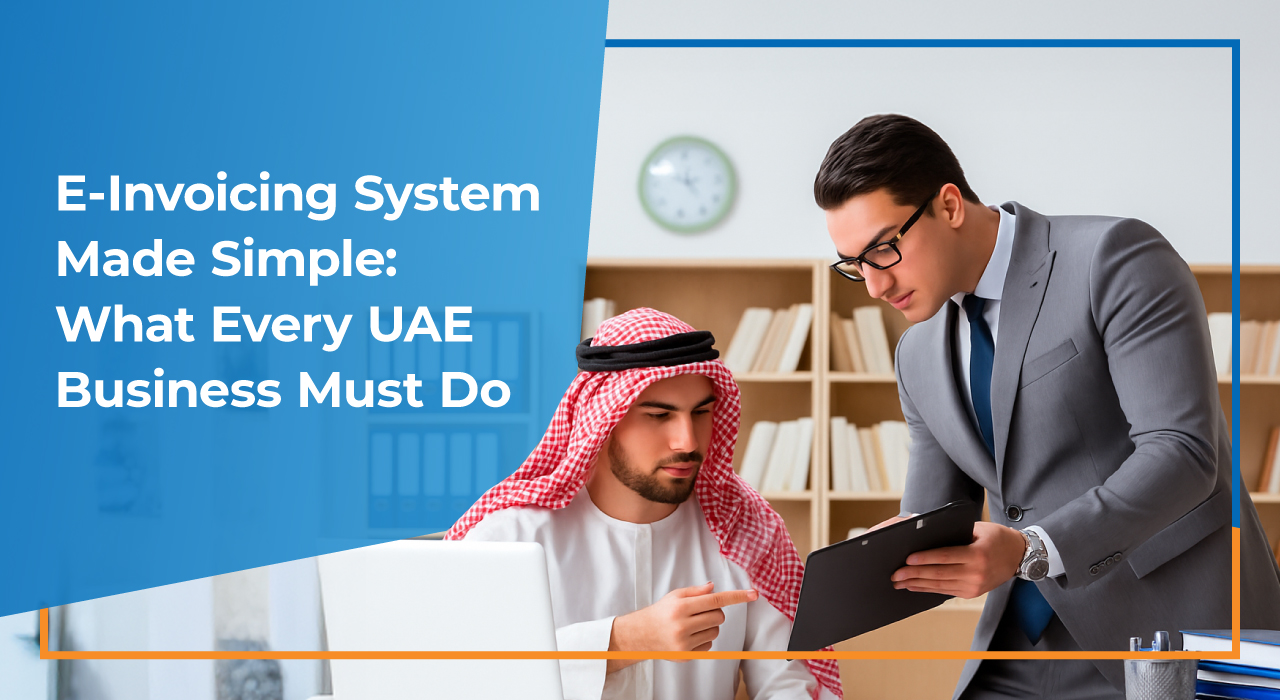Money laundering is a financial crime that murders businesses and the economy. So, naturally, the UAE financial regulations to protect the economy are equally stringent. Hence, you mustn’t be caught on the wrong side of the law. You must follow anti-money laundering compliance regulations to prevent laundering and save your business in the UAE. These laws ensure that companies monitor financial transactions, detect suspicious activity, and report any potential crimes.
The UAE’s AML regulations align with international standards such as the Financial Action Task Force (FATF) and other global authorities. If your business fails to comply, you can face heavy fines, legal action, and reputational damage.
So, how do you know if your AML compliance program is a powerful shield? Here is what we recommend – A strong anti-money laundering compliance framework helps companies:
Identify financial risks
Protect themselves from fraud
Maintain trust with clients, banks, and regulatory authorities
Avoid penalties by meeting UAE compliance requirements
To effectively comply with AML laws, you must establish structured policies. These policies include customer due diligence (CDD), ongoing transaction monitoring, regulatory reporting, and staff training. We understand that analysing all these will be a daunting task! Partnering with Anti-Money Laundering (AML) compliance services such as NNCA will simplify compliance and ensure your business follows all legal requirements. Let’s understand AML A-Z first!
The Money Laundering Process: Dirty to Clean
What is Money Laundering?
Well, it launders money.
Like how your washing machine washes dirty clothes to clean, The money laundering process is the transition of Black money to White money. A method criminals use to disguise illegal money as legitimate income. It involves three main steps:
- Placement – Dirty money enters the financial system through cash deposits or investments.
- Layering – Multiple transactions are made to hide the source of funds (e.g., transferring money between multiple accounts, converting cash into assets like gold or real estate).
- Integration – The “cleaned” money is reintroduced into the economy and used for legal transactions.

Criminals can exploit your business to launder money without a proper anti-money laundering compliance system. Hence, UAE regulations require monitoring your business transactions, verifying customer identities, and reporting suspicious activity.

Case Example:
A UAE exchange house detected unusual transactions from multiple individuals sending small amounts of money to high-risk countries. The transactions were structured just below the reporting threshold to avoid detection. Upon further investigation, it was revealed that this was a case of micro-structuring, a technique used to move illicit money without triggering alarms. The business reported the activity under its AML compliance program, preventing further illegal transactions.
As it is in this case, businesses in high-risk industries like real estate, financial services, and gold trading often are targets of money laundering. Strong AML controls ensure your company is not misled into participating in these activities.
AML Compliance Program: The road to financial health!
The program is a discipline that needs to be plugged into your business to meet anti-money laundering compliance standards.AML aims to combat money laundering activities. Experts at NNCA recommend:
1. Enterprise-Wide Risk Assessment (EWRA)
An Enterprise-Wide Risk Assessment (EWRA) helps your business identify and manage money laundering risks. Companies must:
- Assess risk levels based on customers, transactions, and geographical exposure.
- Identify high-risk clients, such as Politically Exposed Persons (PEPs).
- Update risk assessments regularly to address emerging threats.
Example:
A UAE bank detected an unusually high number of large cash deposits from a single company. Upon investigation, it was found that the company had no legitimate business activity! The funds were linked to illicit activities. The bank reported the case to authorities thanks to its risk-based AML compliance approach.
2. Customer Due Diligence (CDD) & Know Your Customer (KYC)
KYC and CDD are the key and most basic AML programs you must implement. The systems will:
- Collect official identification documents.
- Check customer backgrounds against sanctions lists and watchlists.
- Implement Enhanced Due Diligence (EDD) for high-risk clients.
Example:
First, Abu Dhabi Bank (FAB) implemented a digital onboarding system to strengthen its KYC and CDD procedures. This automated system helped the bank quickly verify customer identities, ensuring compliance with UAE AML regulations.
Read the importance of Understanding Re-KYC for AML Compliance
3. Ongoing Monitoring & Transaction Surveillance
As mentioned, AML compliance is not a one-time process but a discipline. Businesses must continuously monitor transactions to detect suspicious activity.
- Red flags for money laundering include:
- Customers make huge transactions without a clear source of income.
- Rapid movement of funds between multiple accounts.
- Deposits just below reporting limits.
- Transaction monitoring systems help businesses track unusual patterns.
Example:
A UAE real estate firm noticed that a foreign buyer attempted to purchase multiple properties using cash payments. The firm flagged this activity and reported it to authorities. Certain observations become precautions that aims to combat money laundering activities.
4. Regulatory Reporting & Suspicious Activity Reports (SARs)
You must report potential money laundering activities to the Financial Intelligence Unit (FIU) if your business detects potential money laundering activities.
Here are the Types of reports required under UAE AML laws:
- Suspicious Activity Report (SAR) – Filed when a business identifies unusual financial transactions.
- Fund Freeze Report (FFR) – Submitted if a transaction is linked to sanctioned entities.
- High-Risk Customer Activity Report (HRCA) – Documents transactions with politically exposed persons.
Example:
A money exchange company in Dubai reported a pattern of small transactions sent to the same international recipient. Upon investigation, authorities discovered that the funds were linked to organised crime.
5. AML/CFT Governance & Employee Training
It is crucial that your HR train employees during their onboarding in AML governance. It is essential if your business falls under the bracket of money laundering vulnerable industries. A strong AML governance framework includes:
- A dedicated AML Compliance Officer will oversee policies.
- Regular employee training on AML risks.
- Independent audits to review AML procedures.
Example:
A financial institution in Abu Dhabi trained all staff to recognise AML red flags. This training helped frontline employees detect cases where a customer attempted to withdraw a large sum using fake documents.
To know the importance of Audit, read Audit requirements in UAE – how important is it?
6. Record-Keeping & Documentation
It is always good to meticulously keep your records and documents updated.UAE law requires businesses to keep AML records for at least five years. These include:
- Transaction history and risk assessments.
- Customer due diligence reports.
- Suspicious transaction reports (STRs).
Example:
A UAE gold trading company maintained detailed records of all transactions. When authorities requested data for an investigation, the company could provide complete documentation. By this simple compliance procedure, the company protected itself from a labyrinth process of submitting more evidence.
7. Targeted Financial Sanctions & Sanctions Screening
Businesses must screen customers against national and international sanctions lists. Transactions linked to sanctioned individuals or organisations must be immediately reported and blocked.
Example:
A Dubai-based bank detected a customer attempting to send money to a country under international sanctions. The transaction was flagged and stopped, preventing potential violations.
8. Leveraging AI-Powered AML Solutions
AI is empowering every section of any industry. Supercharging your AML program with AI tools is a must in today’s world! AI-powered AML tools help businesses:
- Detect suspicious transactions in real-time.
- Automate risk assessments.
- Improve compliance efficiency.
Example:
Money Service Businesses (MSBs) in the UAE adopted AI-driven transaction monitoring to enhance compliance and more efficiently detect fraudulent patterns.
UAE's AML Regulatory Framework: A Law Brief
The UAE’s anti-money laundering compliance regulations align with global AML/CFT best practices. Here is a law brief that you should be aware of:
1. UAE National AML Regulations
2. International AML Compliance Standards
- • Federal Law No. 20 of 2018 (Anti-Money Laundering & Combating the Financing of Terrorism).
- Cabinet Decision No. 10 of 2019 (Implementation guidelines for AML compliance).
- Cabinet Resolution No. 58 of 2020 (Ultimate Beneficial Ownership Regulations).
- Financial Action Task Force (FATF) guidelines.
- Middle East and North Africa Financial Action Task Force (MENAFATF) regulations.
- Egmont Group of Financial Intelligence Units collaboration
These laws aims to combat money laundering activities by strictly regulating the money laundering process.
To know more about the UAE law framework, read:
Everything About UAE’s Law Framework to Combat Money Laundering and Terrorism Financing
How NNCA Can Help with AML Compliance: Wisdom and Network
Our clients are our top priority! We are traditionalists who believe in giving each of our clients the best of the best services for them. Ensuring anti-money laundering compliance can be complex, but NNCA’s Anti Money Laundering (AML) compliance services provide tried and tested solutions with decades of experience. We help businesses with:
AML Risk Assessments to identify financial threats.
KYC & Customer Due Diligence Implementation to meet regulatory requirements.
Automated Transaction Monitoring for real-time fraud detection.
Regulatory Reporting & AML Training for businesses in high-risk industries.
AML Audit Services to ensure full compliance with UAE laws
Strengthen AML Compliance in the UAE: Precaution is better than prevention
The UAE has established a comprehensive AML compliance framework to combat financial crime. You must implement strong risk management, customer due diligence, transaction monitoring, and reporting procedures. Partnering with NNCA’s Anti Money Laundering (AML) compliance services protects your businesses from fraud, penalties, and reputational damage.
Your UAE company can combat money laundering activities effectively by adopting advanced AML tools, AI-driven monitoring, robust governance, and NNCA as partners.
1. You are a call away from a cleaner, transparent financial system. Contact NNCA for Anti Money Laundering (AML) compliance services
2 Protect your Business from financial crime risks. Contact NNCA today for expert Anti Money Laundering (AML) compliance services.




